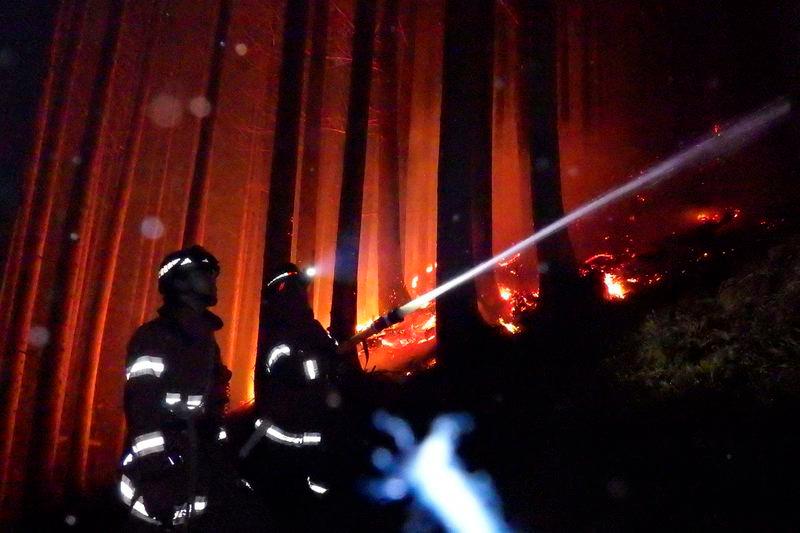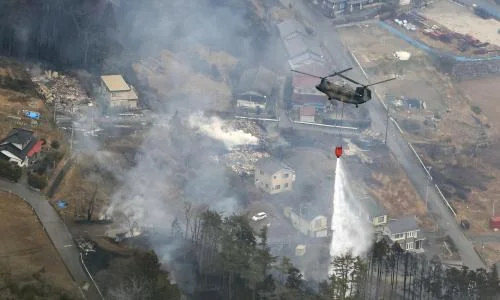Japan’s worst wildfire in over 50 years continued to ravage the Iwate region on Wednesday, but rain and snow provided a glimmer of hope for containment. The fire, which has been burning near the northern city of Ofunato for over a week, has killed one person and forced nearly 4,000 people to evacuate their homes.
The blaze has consumed approximately 2,900 hectares (7,170 acres), making it the largest wildfire since at least 1975. Locals, including 85-year-old Mitsuo Otsubo, described the fire as overwhelming and fast-moving.
The wet weather, which started falling on Wednesday, is expected to continue through Thursday, offering hope to emergency responders. Firefighters, who have been working through the night, are relying on the rain and snow to help control the blaze.

The fire has damaged at least 84 buildings, though full assessments are still underway. Nearly 4,000 residents have evacuated the area. In a show of community solidarity, the owner of an onsen (hot spring) inn opened the facility for free to evacuees.
While wildfires have become more common in Japan due to rising temperatures linked to climate change, this particular fire follows a summer of record heat and severe drought. The region had its driest February on record, with just 2.5 millimeters of rain, compared to the usual 41 millimeters.
The fire has also drawn global attention, with experts noting that climate change is fueling unusual fire patterns worldwide, from Japan to California. Greg Mullins, an Australian climate expert, said the fires were a common by-product of climate change, emphasizing that the world must prepare for fires in areas previously not prone to them.
Firefighting efforts are complicated by the region’s steep and difficult terrain, but Japan has mobilized around 2,000 firefighters from across the country to fight the blaze. Local hero, baseball star Roki Sasaki, who grew up in Ofunato, has contributed a 10-million-yen ($67,000) donation and bedding to help those affected by the disaster.


 Trending
Trending 